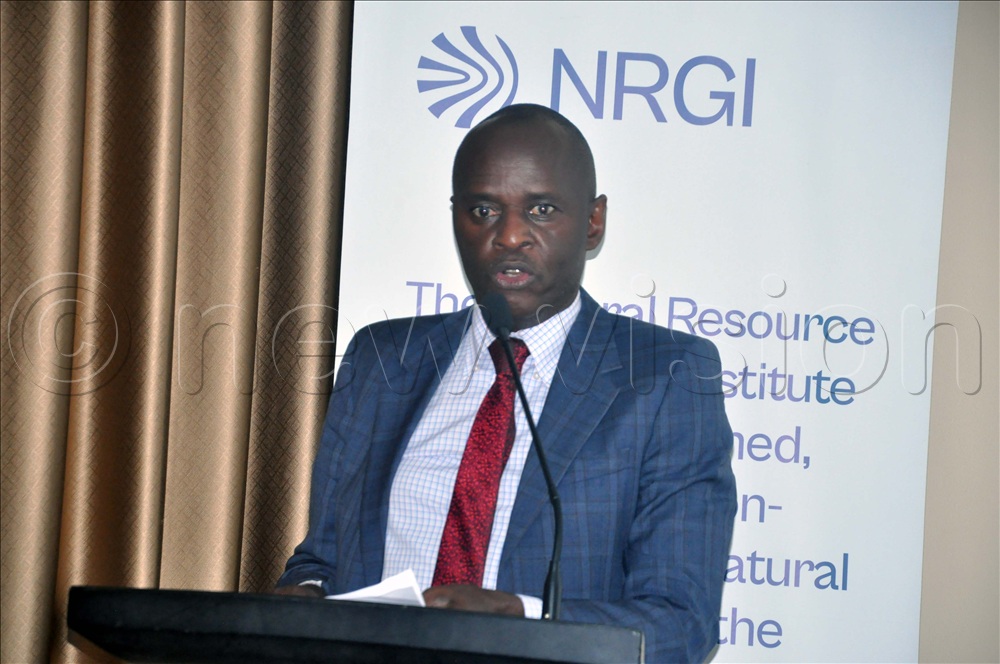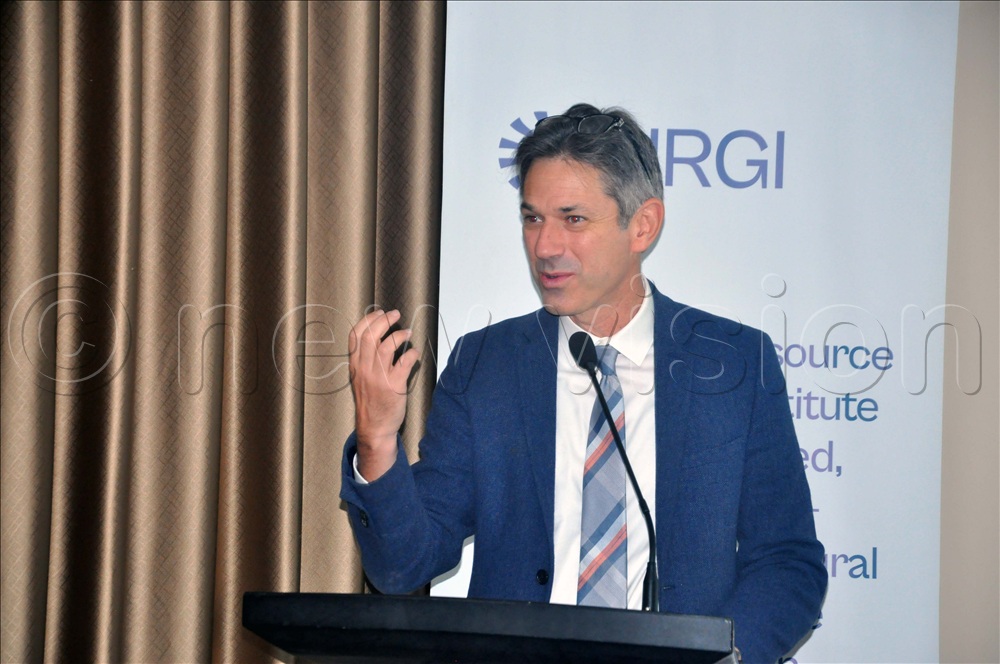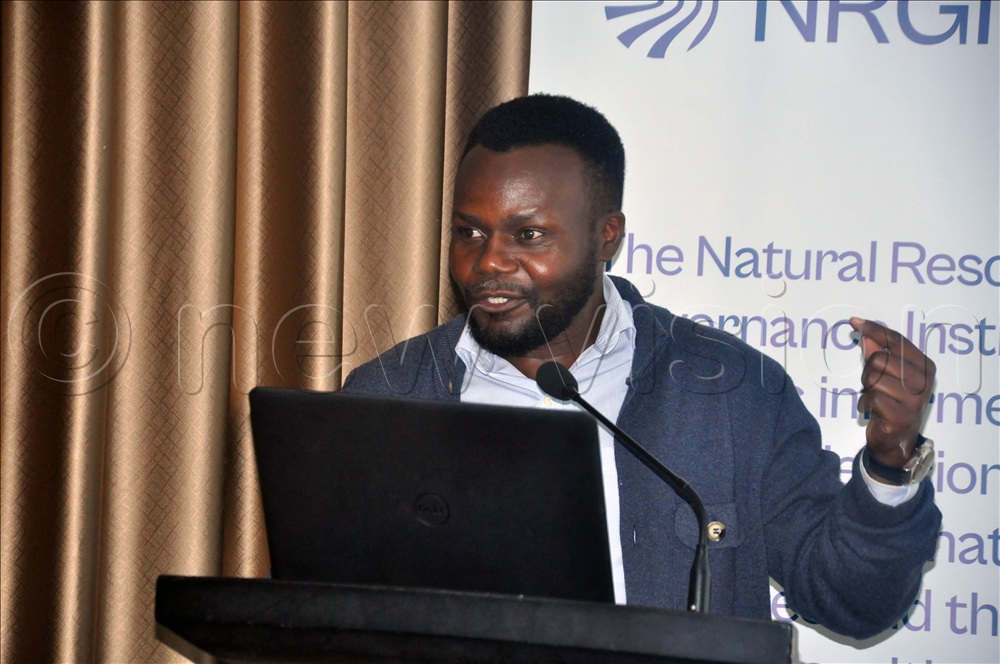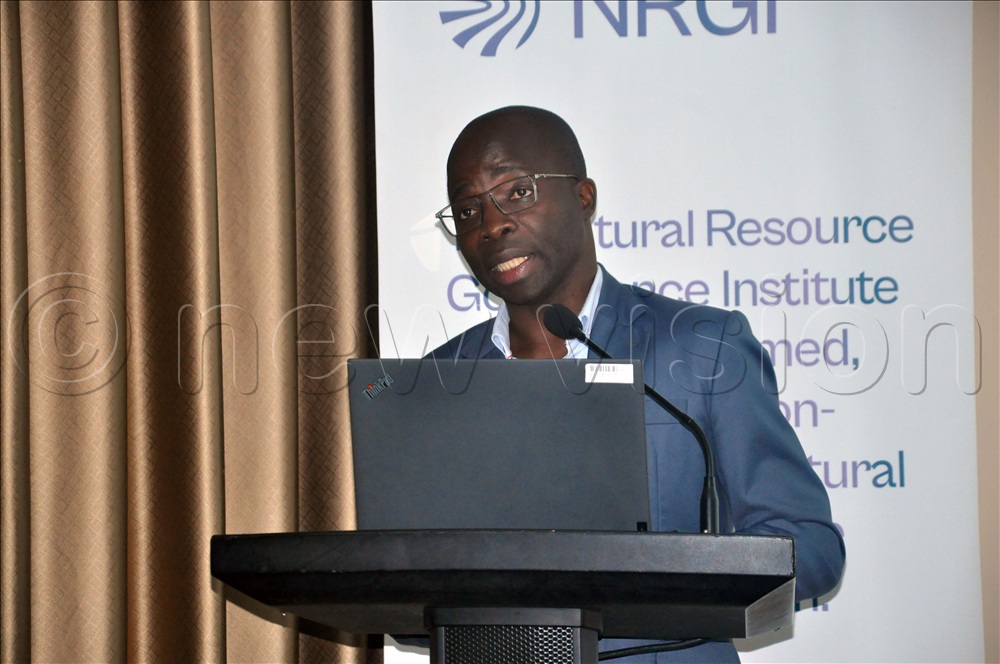Uganda moves to tackle methane emissions in oil sector, drawing lessons from Nigeria
“Methane abatement is not just about compliance. It is about positioning Uganda as a responsible and competitive oil producer in a world transitioning to clean energy,” Mugisha stressed.
Government, civil society officials attending a validation workshop on ‘Mapping study on Uganda’s methane emission abatement ambitions’ in the oil and gas sector at the Sheraton Hotel, Kampala. (Photos by John Odyek)
________________
Uganda is taking steps to curb methane emissions from its oil and gas sector, with government unveiling a draft Petroleum Policy that emphasises greenhouse gas reduction, energy transition and responsible resource management.
The policy, now under stakeholder review, seeks to strengthen legislation on environmental protection, health and safety, transparency, and methane abatement as the country prepares to start commercial oil production in 2025.
Frank Mugisha, the acting commissioner for petroleum exploration at the Ministry of Energy and Mineral Development, said the new framework would provide legal and institutional backing to address methane emissions.
Frank Mugisha addressing participants attending a validation workshop on ‘Mapping study on Uganda’s methane emission abatement ambitions’ in the oil and gas sector at the Sheraton Hotel, Kampala. 
“There is no cause for alarm. By the time oil production starts mid next year, most of the issues will have been addressed, and the rest will be managed as production progresses,” he told participants at a validation workshop in Kampala at the Sheraton Hotel, Kampala on Tuesday, 9 September 2025.
The workshop, themed under Mapping study on Uganda’s methane emission abatement ambitions, which hosted the Natural Resource Governance Institute (NRGI), the Advocates Coalition for Development and Environment (ACODE), and the Ministry of Energy and Mineral Development, brought together civil society, government officials, and environmentalists to shape Uganda’s methane abatement roadmap.
Why methane matters
According to the International Energy Agency (IEA), methane is responsible for over one-third of global warming, with a warming effect 30 times greater than carbon dioxide over a 100-year period, and up to 87 times stronger over 20 years. The energy sector is the largest source of emissions. Without urgent action, global methane output could rise by 13% between 2020 and 2030.
Robust monitoring, reporting, and verification systems are therefore central to Uganda’s policy.
“Methane abatement is not just about compliance. It is about positioning Uganda as a responsible and competitive oil producer in a world transitioning to clean energy,” Mugisha stressed.
Steps underway
Uganda has committed to a low-emission oil production pathway in line with its updated Nationally Determined Contributions (NDCs). Companies operating in Uganda are also adopting best practices.
TotalEnergies, a partner in the Tilenga Project, has joined the Oil and Gas Methane Partnership (OGMP), pledging transparent monitoring and reporting.
Heller speaking to participants attending a validation workshop on ‘Mapping study on Uganda’s methane emission abatement ambitions’ in the oil and gas sector at the Sheraton Hotel, Kampala. 
Uganda National Oil Company (UNOC) has launched an Environmental, Social and Governance (ESG) strategy, including tree planting and a Climate Action Plan to offset emissions.
Mugisha added that Uganda plans to join the Global Methane Pledge and align with the World Bank’s Zero Routine Flaring by 2030 initiative, which would open doors to technical assistance and climate finance.
“Ultimately, it is about protecting the environment and ensuring that oil wealth supports sustainable development without undermining climate commitments,” Mugisha concluded.
Study findings and gaps
A study commissioned by NRGI and presented by consultant Dr. Michael Mbogga the principal investigator revealed gaps in Uganda’s current methane management approach. Key challenges include; the absence of oil production to date, making methane emissions data scarce, limited incentives for abatement. Others are; exclusion of oil and gas methane from Uganda’s climate action plan.
Mbogga recommended creating a Methane Action Plan, setting clear monitoring and reporting rules, introducing incentives and penalties for abatement, strengthening flaring regulations, and updating the national greenhouse gas inventory with a dedicated methane section.
He urged simplified communication of methane issues for public awareness.
Lessons from Nigeria
Patrick Heller, NRGI’s Global Chief Officer, said investing in methane abatement delivers climate, health and economic benefits.
Mbogga presenting the study findings during the validation workshop on ‘Mapping study on Uganda’s methane emission abatement ambitions’ in the oil and gas sector at the Sheraton Hotel, Kampala. 
“There is an opportunity for new oil producers like Uganda to get it right through coordination and strong systems. Rich public understanding will build trust,” he noted.
From Nigeria, Uganda has both caution and opportunity. Tengi George-Ikoli, NRGI’s country manager for Nigeria, explained that Nigeria aims to eliminate gas flaring by 2030 and cut fugitive emissions by 60% by 2031. Yet, gas flaring there rose to 15 billion cubic meters in 2024 adding up to 300,000 tonnes of methane annually.
“Uganda has an even stronger starting point,” George-Ikoli said. “Unlike Nigeria, which must retrofit an entrenched sector, Uganda can embed global best practices from the beginning, saving costs and avoiding mistakes,” she added.
Domisiano Owor, the Environment Officer at the Petroleum Authority of Uganda, said that methane from the oil and gas industry will be harnessed for power generation and cooking instead of being wasted.
He explained that monitoring methane leaks during oil production and from storage tanks will be a key government priority, since most emissions originate from leaks. Measures for timely detection and repair of such leaks will therefore be put in place.
Owor emphasised that gas flaring will only be permitted in cases of system upsets or emergencies.
He added that the use of liquefied petroleum gas (LPG) is expected to cut methane emissions by up to 30%. Together with the Ministry of Water and Environment, the authority is developing regulations for reporting and monitoring emissions and has begun continuous tracking of methane releases during drilling operations.
Owor responding to questions during a validation workshop on ‘Mapping study on Uganda’s methane emission abatement ambitions’ on the oil and gas industry at the Sheraton Hotel, Kampala. 
As Uganda prepares for first oil, stakeholders agree that methane abatement must be at the heart of its petroleum strategy. For government, it is both an environmental obligation and a competitive advantage. For civil society, it is a test of transparency and accountability. For companies, it is a chance to demonstrate responsible production.